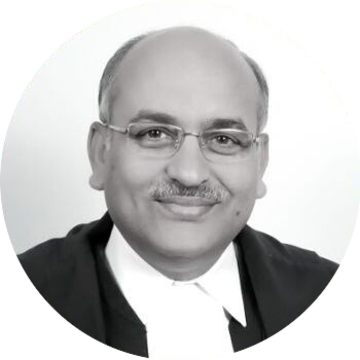Section 15 of the Hindu Succession Act
Kamal Anant Khopkar v Union of India
The Supreme Court will decide if Section 15 of the Hindu Succession Act, 1956, discriminates against women.
Pending
Parties
Petitioner: Kamal Anant Khopkar
Lawyers: Manju Jetley
Respondent: Union of India
Lawyers: Arvind Kumar Sharma, Gurmeet Singh Makker
Case Details
Case Number: W.P.(C) No. 001517 / 2018
Next Hearing: November 6, 2024
Last Updated: July 8, 2025
Key Issues
Does s 15 of the Hindu Succession Act, 1956 discriminate against women?
Case Description
On January 31st 2022, the Supreme Court directed that a petition challenging Section 15 of the Hindu Succession Act, 1956 be listed before a three-Judge Bench.
The petitioner argued that Section 15 of the Hindu Succession Act discriminates against women, violating Article 15 of the Constitution of India, 1950.
The case came to the Supreme Court via a Special Leave Petition filed in December 2018 against a Bombay High Court Order. A Writ Petition challenging the constitutionality of Section 15 of the Hindu Succession Act was filed along with the Special Leave Petition at the Supreme Court.
The Bombay High Court Order stated that a woman did not have a claim to the property of her deceased daughter during the lifetime of her daughter’s spouse. The dispute in question between the woman and her daughter’s spouse was eventually resolved through a settlement, and the Supreme Court dismissed the Special Leave Petition.
However, the Court decided to hear the Writ Petition as it involved issues relating to gender equality.
As per Section 15(1) of the Hindu Succession Act, the property of a Hindu woman dying without a will (‘intestate’) shall be inherited by (‘devolve’ on) her sons, daughters, and husband. If the woman has no living husband or children, the heirs of the husband shall inherit the property. Only in the event that the woman’s husband has no heirs shall the property be inherited by the woman’s parents.
In contrast to s 15(1), Section 8 outlines how the property of a Hindu man dying intestate is to devolve. Where a Hindu man has died intestate, the property shall devolve on the heirs specified in Class I of the Schedule to the Hindu Succession Act.
The relatives in Class I of the Schedule include the wife, children, and mother of the Hindu male, along with a few other relatives including certain grandchildren. If there are no living Class I heirs, the property shall devolve on Class II heirs.
Class II heirs include the man’s father and other relatives including certain grandchildren.
If there are no Class I or II heirs, the property shall devolve on ‘agnates’ or persons related to the Hindu man wholly through male relations, either through blood or adoption.
In the event that there are no Class I or Class II heirs or agnates, property shall devolve on ‘cognates’, who are persons not wholly related through male relations, either by blood or adoption.
There is a difference between the schemes laid out in Sections 15 (Hindu woman) and 8 (Hindu man) of the Act. Under Section 15, the intestate woman’s husband and his heirs are prioritised over the woman’s parents. For the intestate man, on the other hand, under Section 8, the man’s parents are Class I and Class II heirs. Further, for an intestate man, there is no mention of the wife’s heirs inheriting their property under Section 8 of the Act.
Pointing to this difference, petitioners have challenged Section 15 of the Act for being discriminatory and creating different inheritance schemes for intestate men and women.


